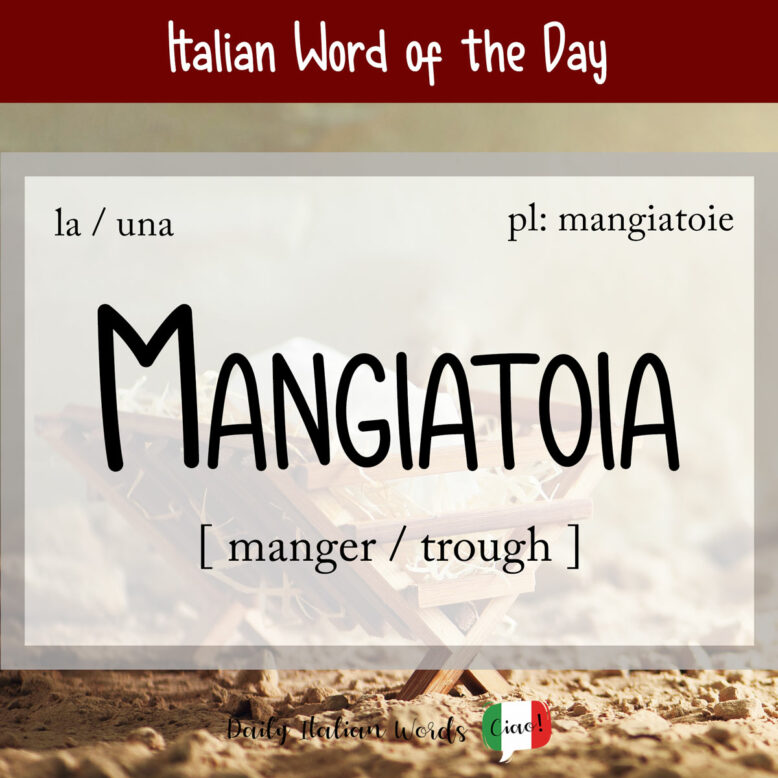Today’s word of the day is part of our Italian Christmas Word Advent Calendar series. Each day throughout December, we’ll post a word that is related to the holiday season. Enjoy!
The word for manger in Italian is mangiatoia (feminine, plural: mangiatoie). It is made up of two parts: mangiare (to eat) + the instrumental suffix -toia which forms nouns from verbs.

According to the Bible, Jesus (Gesù) was laid in a mangiatoia after his birth which, depending on how you interpret the story’s translation, was located either in a stable (stalla) or on the lower floor of a house serving as a nighttime shelter for animals. This is because there was no room for Mary and Joseph in the guest rooms at the local inn in Bethlehem.
Gesù è nato in una mangiatoia.
Jesus was born in a manger.
So, why would the Son of God appear on earth in the lowliest of circumstances? Well, it conveys the message that despite his destiny to become a great ruler, he is humble and accessible rather than privileged and aloof – in other words, he is one of us.
In its figurative form, mangiatoia can refer to a business that tries to make easy money, often in an illegal way.
Did you know that…?
Mangiatoia is also the word for feeder (as in a bird feeder) or trough.
Heather Broster is a graduate with honours in linguistics from the University of Western Ontario. She is an aspiring polyglot, proficient in English and Italian, as well as Japanese, Welsh, and French to varying degrees of fluency. Originally from Toronto, Heather has resided in various countries, notably Italy for a period of six years. Her primary focus lies in the fields of language acquisition, education, and bilingual instruction.


